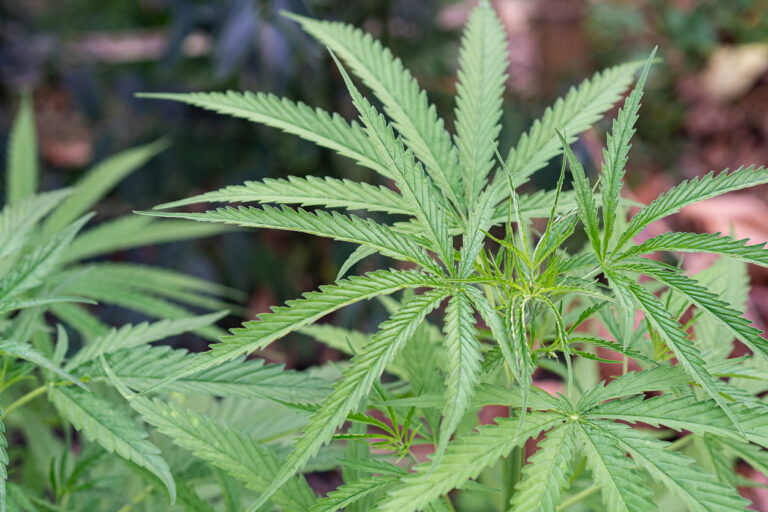WASHINGTON — The National Transportation Safety Board raised a few red flags in a Tuesday response to a proposed rule by the Drug Enforcement Administration to move marijuana from Schedule I to Schedule III of the Controlled Substances Act, warning the rule could imperil federally required drug testing for airline pilots, truck drivers, and many others in safety-sensitive positions.
The agency joins numerous trucking firms in fear about how the move would impact how to regulate for the safety of the drivers and the public on the roads.
The NTSB wrote in a press release that it is concerned that the proposed move would prohibit continued federally required testing of safety-sensitive transportation employees for marijuana use because laboratories certified by the U.S. Department of Health and Human Services for such testing are not authorized to test for Schedule III controlled substances.
In a response to the proposed rulemaking, the NTSB urged the DEA to “ensure that any final rule to reschedule marijuana does not compromise marijuana testing under DOT and HHS procedures applicable to safety-sensitive transportation employees. Such employees include airline pilots, airline maintenance workers, bus and truck drivers, locomotive engineers, subway train operators, ship captains, pipeline operators, personnel transporting hazardous materials, air traffic controllers, and others.”
According to the NTSB, moving marijuana to Schedule III without taking steps to ensure that marijuana testing remains within the scope of pre-employment, random, reasonable suspicion, and post-accident drug testing would create a safety “blind spot,” according the the NTSB release.
“Removal of marijuana testing from DOT and HHS drug testing panels for safety-sensitive transportation employees would remove a layer of safety oversight that employers have been managing for decades, and it would prevent DOT and HHS drug testing from acting as a deterrent to marijuana use by those employees,” the NTSB said. “Additionally, the NTSB would no longer have DOT and federal workplace marijuana test results as evidence in our investigations.”
During a report on a late June House Committee on Transportation & Infrastructure hearing, U.S. Department of Transportation Secretary Pete Buttigieg confirmed that his agency believes that the U.S. Department of Justice’s proposal to reschedule marijuana from a Schedule I to a Schedule III drug will not impact the transportation industry’s ability to screen for marijuana.
The issue has been ongoing with numerous industry groups and drivers weighing in on the issue.
Regulating the use of the substance and keeping the safety standards high became a hot topic in the hearing.
Buttigieg directed his comments to Congressman Rick Crawford (R-Arkansas), who cited two letters that the American Trucking Associations has sent to federal agencies seeking clarity on this major policy shift that could have negative consequences for highway safety.
“We are grateful to Congressman Crawford for elevating this serious issue, and we appreciate Secretary Buttigieg’s focus on providing the transportation industry with the clarity it needs to continue screening for marijuana use among safety-sensitive transportation workers,” said American Trucking Associations President & CEO Chris Spear. “If the trucking industry’s ability to conduct drug testing for marijuana use were to be restricted, a heightened risk of impaired drivers would threaten our nation’s roadways. Â DOT and ATA share the goals of achieving zero highway fatalities and ensuring the commercial driving workforce is qualified to safely operate, which is why we are committed to partnering with DOT to mitigate harmful impacts caused by the potential reclassification of marijuana.”
Marijuana and alcohol remain the most detected drugs in impaired driving crashes resulting in serious or fatal injuries. Â Between 2000 and 2018, crash deaths involving marijuana more than doubled, from 9% to 21.5%. Immediately following Canada’s 2018 legalization of marijuana, the country’s emergency rooms saw a 94% increase in the rate of marijuana-involved traffic injuries.
In response to Congressman Crawford’s line of questioning, Buttigieg explicitly stated that USDOT anticipates that it will maintain the authority to conduct testing of marijuana use by commercial motor vehicle drivers and other safety-sensitive transportation workers.
The American Trucking Associations has transmitted two letters to your agency highlighting [reclassification] concerns, said Congressman Crawford. “Mr. Secretary, I think it’s safe to assume that the number of all impaired drivers on our roadways would increase. Can you speak to what your Department is doing to ensure that transportation workers in safety reliant positions can continue to be tested for marijuana use if this proposal goes forward and how your Department plans to address transportation safety in light of DOJ’s ruling?”
“Our understanding of the rescheduling of marijuana from Schedule I to Schedule III is that it would not alter DOT’s marijuana testing requirements with respect to the regulated community,” Buttigieg said. For private individuals who are performing safety-sensitive functions, subject to drug testing, marijuana is identified by name, not by reference to one of those classes. So even if it was in its classification, we do not believe that that would have a direct impact on that authority.”
Bruce Guthrie is an award-winning journalist who has lived in three states including Arkansas, Missouri and Georgia. During his nearly 20-year career, Bruce has served as managing editor and sports editor for numerous publications. He and his wife, Dana, who is also a journalist, are based in Carrollton, Georgia.








I’m 59 years old, and have used cannabis off and on since 1980.
I’ve never had a DWI/DUI, and never will.
Mainly because I lost several friends, then two relatives to drunk Driving, around the time I got my license.
I’ve been drunk on alcohol before, and I’ve been high on marijuana. Both will impair you, but alcohol is FAR more likely to get someone killed behind the wheel than weed (that doesn’t make driving high ok, it’s just how these two substances work).
I think it’s a little invasive and unfair to test someone for marijuana, when it can still be detected in urine after weeks of non use, but employed drivers can literally get drunk all weekend, and be fine/legal to drive on Monday morning. (I used to drive a drink truck, I know this happens).
This “problem” has an easy fix.
Just as you wouldn’t knowingly allow your employee to drive while drinking/drunk, you shouldn’t allow them to drive high/stoned.
So, testing for intoxication (not testing for something that you did/used weeks ago) from either substance is the simple answer.
The metabolites in marijuana can stay in your body/urine for up to a month or more, FAR after being totally sober, but alcohol is cleared from the body relatively quickly.
t’s very clear that marijuana users are unfairly targeted, because they smoked a little pot last week(s)…….
But actual truckers/employed drivers can get drunk as hell on Saturday night, and be cleared to drive on Monday.
Treat weed like alcohol.
Problem solved.